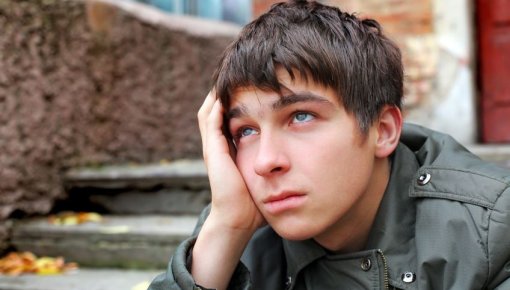Bundesärztekammer, Kassenärztliche Bundesvereinigung (KBV), Arbeitsgemeinschaft der wissenschaftlichen medizinischen Fachgesellschaften (AWMF). Nationale Versorgungsleitlinie Unipolare Depression. AWMF-Registernr.: nvl-005. 2022.
Cipriani A, Zhou X, Del Giovane C et al. Comparative efficacy and tolerability of antidepressants for major depressive disorder in children and adolescents: a network meta-analysis. Lancet 2016; 388(10047): 881-890.
Cox GR, Callahan P, Churchill R et al. Psychological therapies versus antidepressant medication, alone and in combination for depression in children and adolescents. Cochrane Database Syst Rev 2014; (11): CD008324.
Deutsche Gesellschaft für Kinder- und Jugendpsychiatrie, Psychosomatik und Psychotherapie (DGKJP). Behandlung von depressiven Störungen bei Kindern und Jugendlichen (S3-Leitlinie, in Überarbeitung). AWMF-Registernr.: 048-023. 2013.
Hetrick SE, McKenzie JE, Bailey AP et al. New generation antidepressants for depression in children and adolescents: a network meta-analysis. Cochrane Database Syst Rev 2021; (5): CD013674.
Hetrick SE, McKenzie JE, Cox GR et al. Newer generation antidepressants for depressive disorders in children and adolescents. Cochrane Database Syst Rev 2012; (11): CD004851.
Kuwabara SA, Van Voorhees BW, Gollan JK et al. A qualitative exploration of depression in emerging adulthood: disorder, development, and social context. Gen Hosp Psychiatry 2007; 29(4): 317-324.
Locher C, Koechlin H, Zion SR et al. Efficacy and Safety of Selective Serotonin Reuptake Inhibitors, Serotonin-Norepinephrine Reuptake Inhibitors, and Placebo for Common Psychiatric Disorders Among Children and Adolescents: A Systematic Review and Meta-analysis. JAMA Psychiatry 2017; 74(10): 1011-1020.
Miller L, Campo JV. Depression in Adolescents. N Engl J Med 2021; 385(5): 445-449.
Oud M, de Winter L, Vermeulen-Smit E et al. Effectiveness of CBT for children and adolescents with depression: A systematic review and meta-regression analysis. Eur Psychiatry 2019; 57: 33-45.
Pu J, Zhou X, Liu L et al. Efficacy and acceptability of interpersonal psychotherapy for depression in adolescents: A meta-analysis of randomized controlled trials. Psychiatry Res 2017; 253: 226-232.
Robert Koch-Institut (RKI), Statistisches Bundesamt (Destatis). Depressive Erkrankungen (Gesundheitsberichterstattung des Bundes; Heft 51). Berlin: RKI; 2010.
Stockings EA, Degenhardt L, Dobbins T et al. Preventing depression and anxiety in young people: a review of the joint efficacy of universal, selective and indicated prevention. Psychol Med 2016; 46(1): 11-26.
Woodgate RL. Living in the shadow of fear: adolescents' lived experience of depression. J Adv Nurs 2006; 56(3): 261-269.
IQWiG health information is written with the aim of helping people understand the advantages and disadvantages of the main treatment options and health care services.
Because IQWiG is a German institute, some of the information provided here is specific to the German health care system. The suitability of any of the described options in an individual case can be determined by talking to a doctor. informedhealth.org can provide support for talks with doctors and other medical professionals, but cannot replace them. We do not offer individual consultations.
Our information is based on the results of good-quality studies. It is written by a team of health care professionals, scientists and editors, and reviewed by external experts. You can find a detailed description of how our health information is produced and updated in our methods.

